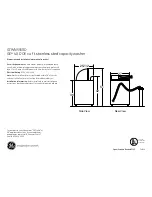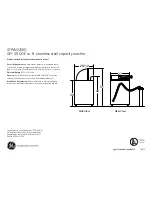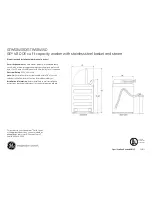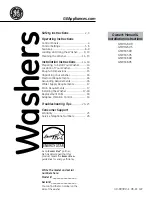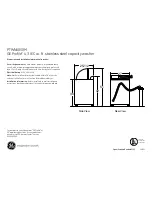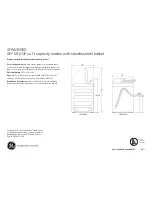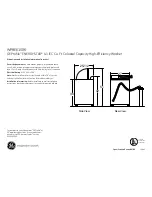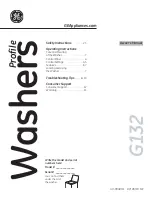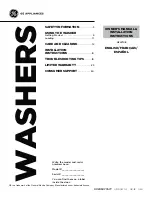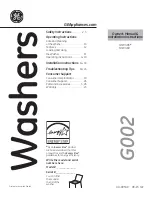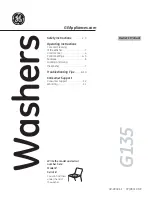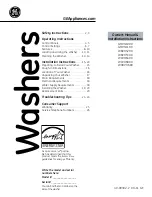
EN
17
Loading the racks
*
Only available in selected models. The number and position
may vary.
Before loading the racks, remove all food residue from
crockery and empty liquids from glasses and cups.
After loading the appliance, make sure that the sprayer
arms can rotate freely.
Lower rack and cutlery basket
The lower rack can hold pans, lids, plates, salad bowls, cutlery, etc.
Large plates and lids should ideally be placed at the sides of the rack.
Several dishwasher models are fitted with tip-up sections
*
,
which can be used in a vertical position when arranging plates
or in a horizontal position when arranging saucepans, salad
bowls and frying pans.
The type of cutlery basket may vary (modular or non-modular)
according to the dishwasher model. The non-modular basket must
only
be positioned at the front of the lower rack.
Both are fitted with
grilles over the top,
for improved cutlery
arrangement.
Knives and other utensils with sharp edges must be
placed in the cutlery basket with the points facing
downwards, or they must be positioned horizontally in the tip-
up compartments on the upper rack.
Upper rack
Load this rack with delicate and lightweight crockery: glasses,
cups, saucers and shallow salad bowls.
Adjustable position tip-up compartments
The tip-up compartments
can be positioned at
different heights, to
optimise the arrangement
of crockery throughout the
rack. Wine glasses can be
placed safely in the tip-up
compartments, by inserting
the stem of each glass into
the corresponding slots.
Adjusting the height of the upper rack
In order to make it easier to arrange the crockery, the upper
rack may be moved to a higher or lower level.
The height of the upper rack should ideally be adjusted
WHEN THE RACK IS EMPTY.
NEVER raise or lower the rack on one side only.
Open the left and right guide rail stops
and pull out the rack; position it higher or
lower as required, slide it along the guide
rails until the front wheels are in place and
close the stops (
see figure
).
If the rack is fitted with
Dual Space
handles
*
(
see figure
), pull out the upper
rack until it reaches its stop point, grip the
handles at the sides of the rack and
move it upwards or downwards, then
slowly let it fall back into place.
Items that should not be washed in the dishwasher
• Wooden items, objects with wooden or horn handles or
glued-on parts.
• Items made from aluminium, copper, brass, pewter or tin.
• Items made from plastic material which is not heat-resistant.
• Antique or hand-painted porcelain.
• Antique silver. Silver that is not antique may, however, be
washed in the dishwasher using a delicate wash cycle,
provided that it does not come into contact with other metals.
We recommend the use of crockery which is dishwasher
safe.































